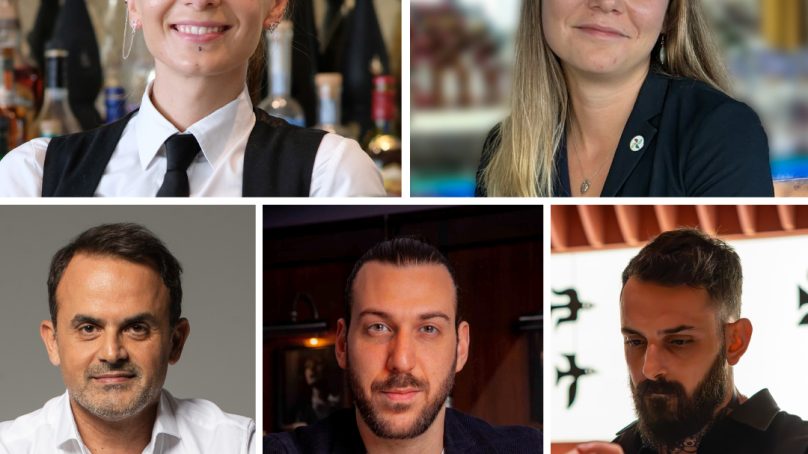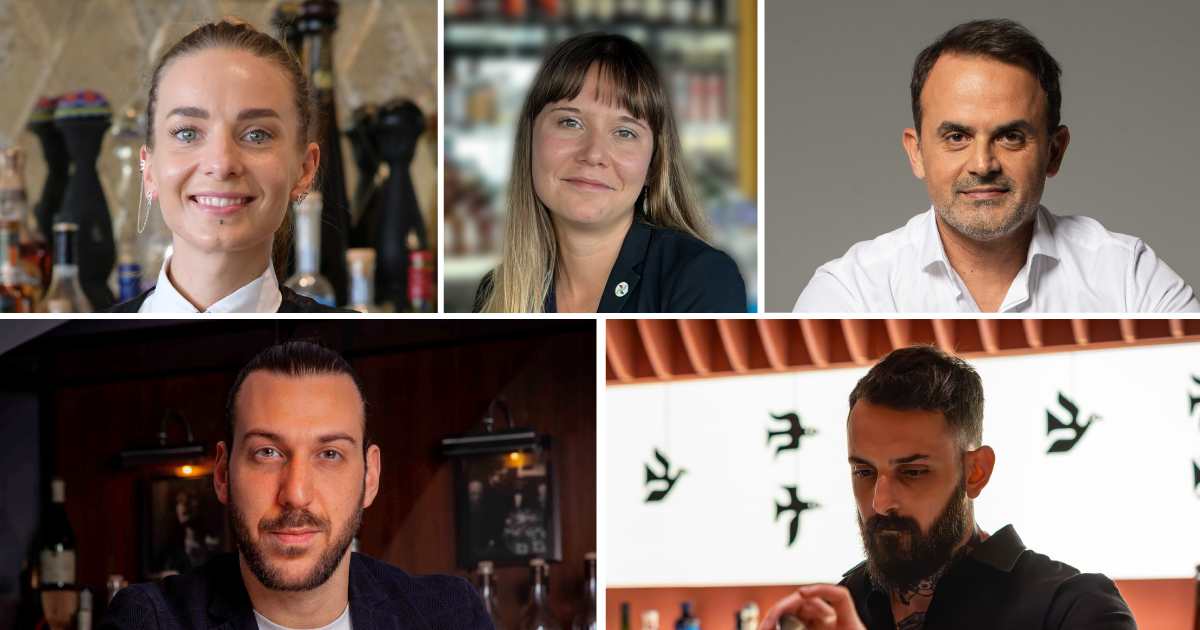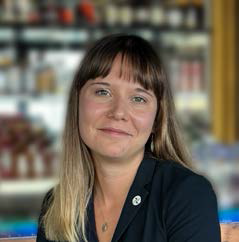

Savory successes
New movements that stand out include the growing demand for low-alcohol and non-alcoholic spirits and cocktails, driven by consumers seeking healthier lifestyle options. Another notable trend is the rise in craft spirits, which are spotlighting local ingredients and distinctive flavors, adding a unique touch to the industry’s offerings. We’re also seeing growing demand for savory drinks, such as our signature drink Tomatini. An all-time favorite, its popularity has inspired us to make November 12 Tomatini Day! This will now be celebrated annually at all our locations and, to kick things off, we’re dedicating a whole week to the drink from November 12-18, with a full calendar of events and activities.
Healthy options
Consumers are increasingly willing to spend more on premium spirits, valuing quality over quantity. This has led to a rise in small-batch and artisan distilleries. As part of the health-conscious drive, which has increased demand for lower-alcohol and non-alcoholic options, we’ve noticed that low-calorie cocktails and spirits are becoming more popular. These are often marketed as healthier alternatives. In line with these trends, we celebrate Dry January annually, offering a unique selection of non-alcoholic cocktails during the month.
Tapping into tech
Today’s consumers are looking for more personalized experiences and we expect this trend to continue growing. Brands can tap into it by offering custom products, like personalized spirits or cocktail kits to suit individual tastes. Technology will also play an increasingly important role in the future. Innovations like augmented reality, blockchain for tracking ingredients and new distillation methods are expected to become more commonplace to improve production and connect brands with customers. We are using the latest technology in many ways, including a sous vide machine to infuse spirits and syrups with fantastic flavors, and a rotary evaporator (rotovap) that helps to take our cocktails to the next level.

RAMINTA AMBROŽEVIČIŪTĖ
Bar supervisor
La Petite Maison Dubai
lpmrestaurants.com/dubai/
@ramintambro
@lpmdubai
Authentic offerings in demand
The spirits industry is increasingly moving toward premiumization, with consumers willing to pay for higher-quality products. Alongside this shift, there’s growing interest in low- and no-alcohol options, appealing to health-conscious individuals and those who favor more mindful drinking habits as part of a balanced lifestyle. Consumers are also gravitating toward spirits with distinctive, innovative flavors, which has led to a preference for eco-conscious brands. This shift is driving more people to choose artisanal distilleries, focused on authenticity and craftsmanship, over large producers. Additionally, travel and exposure to different cultures have introduced consumers to traditional spirits from around the world, and these new discoveries are now appearing in the mainstream market.
Connecting with customers
The pandemic led many consumers to experiment with making cocktails at home, boosting the popularity of versatile spirits. Beyond home experimentation, there has also been a surge in demand for ready-to-drink (RTD) cocktails, offering a convenient, yet premium experience. Social media has played a major role in shaping these trends. At the same time, it has become easier than ever to order spirits online, allowing consumers to connect directly with producers. This increased access has led to more personalized shopping experiences and closer relationships between brands and their customers.
E-commerce growth opportunities
Technological advancements, such as virtual tastings, are bringing new experiences to the spirits industry. Consumers can now add a personalized touch by adjusting flavor profiles and blends. Emerging markets, especially in Asia and Africa, are expected to offer substantial growth opportunities. Additionally, the trend of buying spirits online will grow, driven by the convenience and broader accessibility that e-commerce offers. Brands are investing more in direct-to-consumer models, which are likely to further fuel this shift. Sustainability will remain a major focus. Many brands are exploring carbon-neutral production methods and innovative ways to minimize their environmental footprint, while packaging is also evolving.

NAOMIE GAUCHAT
Restaurant and bar manager
Level 43 Sky Lounge
level43skylounge.com
@level43dubai
Blending scale with artisanal qualities
Large spirits brands like ours are embracing the craft spirits trend through strategic acquisitions, enabling them to tap into authenticity and distinctive flavor profiles. They are also innovating within their established brands by introducing limited-edition products that appeal to artisanal consumer preferences. These companies prioritize transparency and storytelling to forge emotional connections with their audience and share key messages. By supporting local distilleries and nurturing craft ecosystems, brands can strengthen their market position. With the craft spirits market poised for significant growth, large brands recognize opportunities to blend scale with the artisanal qualities that consumers desire.
Sharpened sustainability focus
Spirits brands are adopting innovative sustainability practices in response to consumer demand and regulatory pressures for greater environmental and social responsibility. We are transitioning to renewable energy, for example, aiming for carbon-neutral distilleries, while implementing advanced water stewardship programs to conserve this critical resource. Sustainable sourcing of ingredients is central to our Grain-to-Glass initiative, promoting responsible farming practices. Additionally, the circular economy is embraced through waste reduction, recyclable packaging and initiatives like our plastic-free paper bottle for Johnnie Walker. By integrating these practices, spirits brands are not only enhancing their sustainability efforts, but also ensuring long-term viability in a competitive market.
AI: an essential tool
Advancements in AI are transforming mass personalization and customization in the drinks industry, enabling brands to tailor experiences for consumers at scale. AI-driven data analytics allow companies like ours to understand consumer preferences, enhancing targeted marketing and product offerings. Personalized product recommendations, such as our ‘What’s Your Whisky’ tool, suggest specific products based on individual tastes. AI also improves retail experiences with personalized recommendations and virtual assistants. Additionally, AI supports custom cocktail creation and accelerates product development by analyzing consumer feedback. Personalized packaging further enhances the customer experience, making AI essential for driving engagement and satisfaction in a competitive market.

Quality a priority
The spirits industry is evolving in exciting ways. One of the biggest current trends is the shift toward higher-quality spirits. People are willing to spend more for artisanal products that feel special and authentic. Sustainability is also a major focus, with many brands working to reduce their environmental impact through eco-friendly packaging and sustainable sourcing. Another key development is the rise of low- or no-alcohol options, driven by health-conscious consumers. In addition, the growth of online sales and digital engagement is reshaping how brands connect with consumers. People are becoming more adventurous, seeking out new and unique spirits.
Home comforts
The way in which people consume spirits has changed somewhat in recent years. Whereas previously, consumers tended to mostly drink in bars or restaurants, they are now also enjoying spirits more at home – a trend that started during the pandemic and has continued. RTD cocktails have become increasingly popular. Health-conscious drinking is another trend – people are choosing drinks with lower alcohol content or drinking smaller amounts, but focusing on better quality. Online shopping for spirits has expanded significantly, making it easier than ever for people to discover niche brands and explore new options from the comfort of their home.
A new chapter in storytelling
The future of the spirits industry will continue to evolve, with sustainability playing an even bigger role as more brands adopt eco-friendly practices and transparent sourcing. Technology, such as AI and blockchain, will also be key in shaping the industry. Health trends look set to remain, with some brands likely to focus on mindful consumption. The desire for high-end experiences is also here to stay, so we can expect more emphasis on storytelling and personalization from brands. And, as people become more curious about global flavors, interest in spirits from different regions is likely to rise, giving consumers the chance to explore new tastes and traditions.

MIKE KASSABIAN
Head of mixology Groupe PIC
@mike.kassabian
Innovative drinking experiences
Current trends in the spirits industry include a rise in premium and craft spirits, with consumers seeking high-quality, artisanal products. There’s also growing interest in sustainability, prompting brands to focus on eco-friendly practices and packaging. Low-alcohol and non-alcoholic spirits have definitely become more popular as part of the broader wellness trend. Innovative flavors and unique ingredients are also trending, with consumers exploring diverse tastes. We’re seeing an increase in the use of technology in production and marketing as well, such as blockchain for traceability and digital platforms for engagement. These trends reflect a shift toward personalized, responsible and innovative drinking experiences.
Thoughtful, personalized consumption
Consumers are increasingly leaning toward quality and authenticity when choosing spirits. The rise of unique, exotic flavors and artisanal production methods also reflects a growing desire for novel and diverse drinking experiences. Additionally, the convenience of RTD cocktails and the increasing use of digital platforms for purchasing and engaging with brands highlight a move toward more accessible and personalized consumption. These changes indicate a shift in the direction of more thoughtful and varied drinking habits.
Premiumization a key disruptor
The future of the spirits industry is expected to be influenced by several key trends, led by premiumization, with consumers increasingly seeking high-quality, premium products. This trend is driving growth in the market for aged spirits, artisanal brands and small-batch production. We are also seeing a growing interest in new flavors, innovative products and experimental blends, which is pushing up demand for craft spirits, unique infusions and non-traditional ingredients. Additionally, environmental concerns are prompting many companies to adopt more sustainable practices, from eco-friendly packaging to energy-efficient production methods and the responsible sourcing of ingredients. Demand for lower-alcohol and non-alcoholic alternatives is set to continue rising, while e-commerce and direct-to-consumer models are becoming increasingly important, driven by the convenience of online shopping and the growth of digital marketing.

AYMAN ZAYOUR
Partner and beverage director
Mii-Yao and Terre
@terrebeirut
@miiyaobeirut
@ayman_zayour














